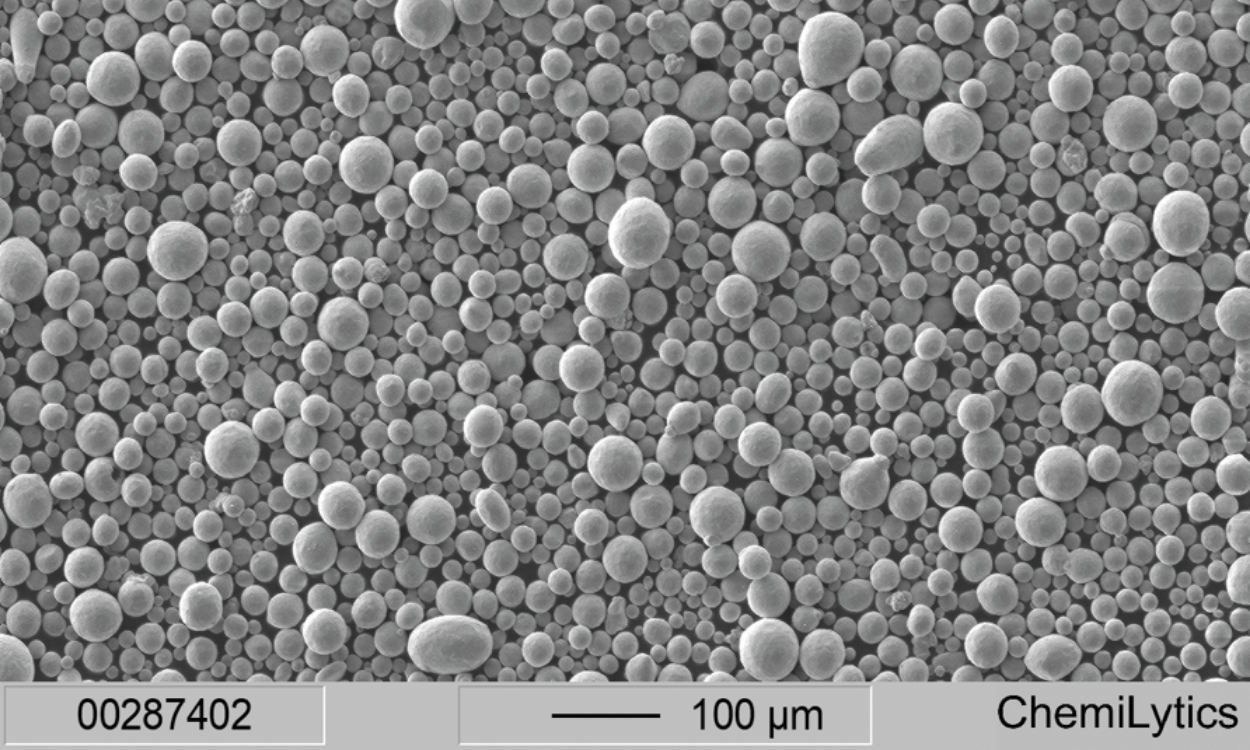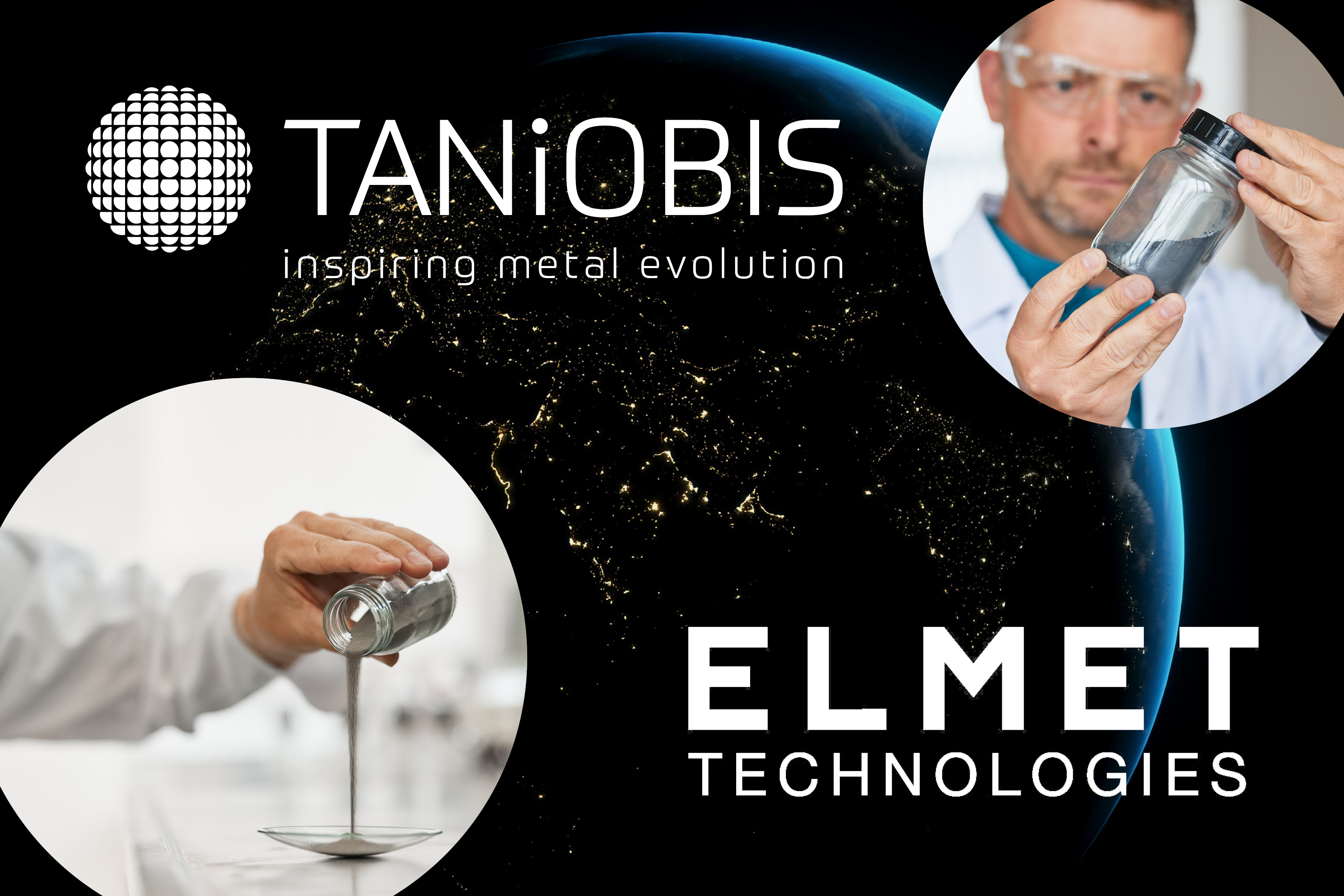TANIOBIS drives transformation with networked production
TANIOBIS is providing new impetus with a transformation program and targeted investments in forward-looking technologies such as artificial intelligence and additive manufacturing. The company is strengthening its position as a developer of high-performance materials for the electronic industry and aerospace technology. These materials are indispensable for meeting the requirements of modern technologies.
TANIOBIS develops customized solutions that go beyond traditional materials development and can be used for the technologies of tomorrow. With its advanced tantalum and niobium materials, the company is at the center of many growing megatrends such as artificial intelligence, additive manufacturing, and highly specialized applications in the electronic industry and aerospace technology. These materials are not only heat-resistant and mechanically robust but also provide high energy density and corrosion resistance. Demand for tantalum is rising, particularly in artificial intelligence. AI applications are based on extensive parallel data processing and require hardware that operates extremely quickly, efficiently, and stably, such as CPUs, GPUs, or specialized AI accelerators. As AI workloads increase, data centers face a new challenge: rising power demands. Modern AI processors can consume enormous amounts of energy, prompting infrastructures to transition to higher voltages, for example from 12 V to 48 V on the boards.
This shift reduces current, lowers energy losses, decreases heat, and improves overall efficiency. At the heart of this transformation are tantalum capacitors, which are preferred for their energy density, thermal stability, low ESR (Equivalent Series Resistance), and long-term reliability. TANIOBIS also contributes to advances in semiconductor manufacturing. Microprocessors and memory chips used in generative AI require continuous improvements in speed and energy efficiency. In the latest chip generations, developers are achieving ultra-fine conductor paths using coating processes based on high-purity molybdenum and tungsten chlorides. These chlorides are among TANIOBIS’ key growth materials and are being developed and produced at the Goslar and Laufenbug sites to meet the increasing demand of the semiconductor industry.
In addition to these high-performance materials, TANIOBIS also provides 3D printing powders, which are primarily used in the aerospace industry. Space technology is another area in high demand, as the materials must be able to withstand extreme conditions. TANIOBIS is leveraging this demand to develop high-performance alloys that can withstand temperatures of over 1,600°C, making them suitable for demanding space applications.

In the latest chip generations, developers are achieving ultra-fine conductor paths using coating processes based on high-purity molybdenum and tungsten chlorides.
New structures for sustainable success
In order to be optimally positioned for the future, the company plans to further expand its capacitor powder portfolio. TANIOBIS is focusing on two key technologies. Sodium reduction delivers powder with excellent flow properties and reliable performance for low- and medium-voltage applications as well as low capacity high-voltage applications. This technology is considered the industry standard in tantalum powder production and is continuously being further developed at TANIOBIS, supplemented by customized solutions and technical support. In addition, magnesium reduction is used, a technology developed in Goslar that produces powder with a refined pore structure, thereby enabling higher capacities.
Due to their improved structural properties, these powders are particularly suitable for high-capacity applications and polymer capacitors. Together, these two technologies enable TANIOBIS to produce powder grades that are specifically optimized for future-oriented applications such as AI servers and edge computing devices. At the same time, structural changes are being made at the plants, including the expansion of the production capacities in Map Ta Phut, Thailand. In addition, the focus is on further optimizing production processes and specializing individual locations in order to make processes more efficient, further develop customer specific products, and shorten response times to market requirements. “By increasing the specialization of individual sites, we are improving our production flexibility and can respond more quickly to increasing market demands,” explains Masafumi Ishii, CEO at TANIOBIS. “This allows us to create synergies and promote our sustainable success.”




